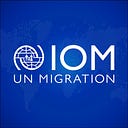Youth Leadership in 21st Century Governance
“This is about young people being agents of change, and having a seat at the decision-making table: not in the future, but today,” said IOM Deputy Director General, Amb. Laura Thompson.
On 28 February, at the margins of the 2019 International Dialogue on Migration, a side-event on youth leadership in 21st century migration governance took place. The all-female, all-youth panel reviewed key outcomes and recommendations from the 2018 Marrakech Youth Forum, and explored strategies for youth to better engage in migration governance. The Forum, organized by United Nations Major Group for Children and Youth (UNMGCY), in official partnership with IOM and UNICEF, brought over 150 youth from over 50 countries to Marrakech, Morocco. The Forum served to raise youth voices and perspectives on global migration governance.
The side-event was opened by IOM’s Deputy Director General, Amb. Laura Thompson. She stressed IOM’s strong commitment to youth engagement: “In pursuit of [a sustainable] future, we remain committed to ensuring that youth are key partners in migration governance, and that their right to meaningful engagement is realized.”
Following the opening remarks, Ms. Roxanne Tajbakhsh, the Global Focal Point for the Migration Working Group at UNMGCY, gave the keynote. As the organizer of the 2018 Marrakech Forum, she encouraged entities across the UN system to continue engaging youth: “As youth, we have the vision, the knowledge, the experience to help us pave the way towards a better, more colorful future. So, engage us. Invest in us. And count us in.”
A panel discussion followed. Here’s the discussion:
- Who are you? And what are you passionate about?
Julia: I am the President of the International Youth Federation (IYF). IYF works to ensure youth develop the leadership, technical, and life skills to earn a livelihood. I’m passionate about youth engagement and representation. We’re not relevant tomorrow; we’re relevant today. I believe there are two things at the UN that should never be discussed without mention of youth: climate change and migration.
Iliana: I am the Director of Research and Entrepreneurship at Immigrants Rising. Immigrants Rising works to help undocumented students get higher education. I am a DACA recipient, and an undocumented migrant. I grew up with the fear of being deported, and my parents being deported. After receiving higher education, I lost some of that fear. There is power in gathering together with powerful narratives as one. I’m passionate about comprehensive immigration reform, including reforms such as providing higher education, work authorization, and freedom of movement to undocumented migrants.
Roxanne: I am the Global Focal Point for Migration Working Group at the United Nations Major Group for Children and Youth (UNMGCY): the UN General Assembly-mandated, official, formal, and self-organized space for youth under 30. We have a constituency of 7,500+ youth-led and serving organizations and engage in more than 80 official UN processes. I am passionate about youth engagement at the UN. We organized the Youth Forum seeking to enhance youth engagement through capacity-building and information-sharing.
2. What can youth add to migration governance and policymaking?
Julia: Young people are Sustainable Development Goals (SDGs) natives. We grew up in a world where values and principles of sustainable development is inherent in how we interact with each other. In migration, we are already working to build peaceful, just, and inclusive societies. It’s actually often youth leaders that are on the forefront of building social inclusion, and designing and implementing responsive integration policies for migrants.
Roxanne: Our hands are less tied by diplomacy. We can address the more taboo drivers of migration. We are going to be living in a world that is decided on today. As a result, we can ask for accountability from the decision-makers of today. This is a unique perspective that we bring.
Iliana: We have the power of storytelling. I think it’s easy to label an undocumented migrant as an ‘illegal’. The power of storytelling is really important to counter those narratives. Another key tactic: civil disobedience. It involved doing sit-ins in congressional offices, and involved marches in Washington, D.C. There are a lot of grassroots movements working together to work towards comprehensive immigration reform. When we have to constantly live with the fear of deportation, we constantly look at action. This is an opportunity for everyone and anyone to take action on an issue that they’re passionate about.
3. How can we better engage youth?
Roxanne: We fight so hard to get the space, that by the time we get it, we’re exhausted. If older generations had a little more faith in the younger generations, to learn and build capacity, you might be pleasantly surprised. We need the official space to meaningfully engage.
Julia: We can engage and include youth delegates and focal points; we can build a roster of young experts; young leaders can begin briefing country teams; we can branch youth organizations together; and we can have more youth representation at the Global Forum on Migration and Development (GFMD) and official spaces for global migration governance.
Iliana: Specifically, for my cause, it’s only been a decade since the movement for undocumented migrants began. It’s only going to get better from here. We can support undocumented youth in their pursuit for higher education; encourage their participation at high levels of government; and continue to push for comprehensive immigration reform.
The article was prepared by Amira Nassim, Migration Policy Officer at IOM’s Office to the UN.
